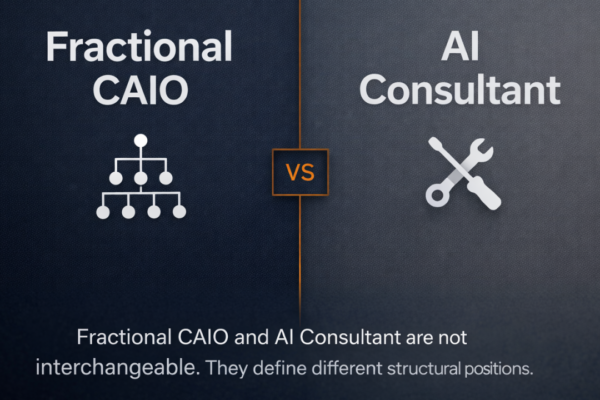
AI in eCommerce: Smarter Recommendations, Better Conversions
The e-commerce landscape is a fiercely competitive arena. Standing out from the crowd and capturing the attention of increasingly discerning consumers requires more than just a compelling product line. It demands a personalized, intuitive, and seamless shopping experience. And in this quest, Artificial Intelligence (AI) is rapidly emerging as the key to unlocking unprecedented levels of customer engagement and, ultimately, driving higher conversion rates.
For e-commerce managers, online retailers, and growth marketers, understanding and implementing AI is no longer a luxury; it’s a necessity. This article will explore how AI-driven recommendation engines are transforming the industry, enabling businesses to predict customer preferences, improve product discovery, and boost sales in ways previously unimaginable.
The Power of Prediction: Understanding AI-Driven Recommendation Engines
At the heart of AI’s impact on e-commerce lies its predictive capabilities. AI algorithms, specifically those powering recommendation engines, are designed to analyze vast amounts of data and identify patterns in customer behavior. This data can range from simple demographics and purchase history to more complex interactions like browsing patterns, search queries, product reviews, and even social media activity.
By processing this information, AI can create a detailed profile of each customer, understanding their individual preferences, needs, and likely future purchases. This allows e-commerce platforms to provide highly personalized product recommendations, ensuring that customers are presented with items they are genuinely interested in, rather than being bombarded with irrelevant or generic suggestions.
Think of it as having a personal shopping assistant who knows your taste better than you do. Instead of endlessly scrolling through pages of products, customers are guided towards items that align with their individual needs and desires. This dramatically improves the shopping experience, increasing the likelihood of a purchase and fostering customer loyalty.
Beyond the Basics: Different Types of AI Recommendation Engines
While the concept of product recommendations isn’t new, the sophistication and effectiveness of AI-powered engines represent a significant leap forward. There are several different types of AI recommendation engines, each employing distinct techniques to predict customer preferences:
- Collaborative Filtering: This approach leverages the collective wisdom of the crowd. It analyzes the purchase history and preferences of similar users to recommend items that the current customer might also enjoy. For example, if a user buys product A and product B, and another user buys product A, collaborative filtering would recommend product B to the second user.
- Content-Based Filtering: This method focuses on the characteristics of the products themselves. It analyzes product descriptions, categories, and attributes to identify items similar to those the customer has previously purchased or interacted with. For example, if a user buys a running shoe with specific features like cushioning and support, content-based filtering would recommend other running shoes with similar characteristics.
- Hybrid Recommendation Engines: These engines combine the strengths of both collaborative and content-based filtering to provide even more accurate and personalized recommendations. By leveraging both user behavior and product attributes, they can overcome the limitations of either approach alone.
- Association Rule Mining: This technique identifies relationships between different products. It analyzes transaction data to discover frequently co-occurring items and recommends them together. For example, if customers frequently buy a laptop and a laptop case, the system would recommend a laptop case to anyone who buys a laptop.
- Deep Learning-Based Recommendation Engines: Leveraging the power of neural networks, these advanced engines can identify complex and subtle patterns in customer data that traditional algorithms might miss. They are particularly effective in handling large and complex datasets, providing highly personalized and accurate recommendations.
Implementing AI for Improved Product Discovery and Conversion Rates
Implementing AI-driven recommendation engines can significantly improve product discovery and boost conversion rates in several ways:
- Personalized Product Recommendations: As discussed, AI provides the ability to offer tailored recommendations across various touchpoints, including the homepage, product pages, shopping cart, and email campaigns. This ensures that customers are always presented with relevant and engaging product suggestions.
- Improved Search Functionality: AI can enhance search functionality by understanding the nuances of customer queries and providing more accurate and relevant results. This goes beyond simple keyword matching, taking into account factors like user intent, context, and past behavior.
- Upselling and Cross-selling Opportunities: AI can identify opportunities to upsell customers to higher-value items or cross-sell complementary products. For example, when a customer adds a smartphone to their cart, the system can recommend a screen protector or a pair of headphones.
- Personalized Email Marketing: AI can personalize email marketing campaigns by tailoring product recommendations and messaging to individual customer preferences. This can significantly improve email open rates, click-through rates, and ultimately, conversions.
- Dynamic Product Ranking and Merchandising: AI can dynamically rank products based on their relevance to individual customers, ensuring that the most appealing items are displayed prominently. This can also be used to personalize product assortments and merchandising strategies, optimizing the overall shopping experience.
- Real-Time Personalization: AI allows for real-time personalization based on a customer’s current browsing behavior and interactions. This ensures that recommendations are always relevant and timely, maximizing their impact.
Overcoming Implementation Challenges
While the potential benefits of AI in e-commerce are undeniable, there are also challenges to consider:
- Data Requirements: AI algorithms require large and high-quality datasets to function effectively. E-commerce businesses need to ensure they have the necessary data infrastructure and processes in place to collect, store, and process relevant customer data.
- Technical Expertise: Implementing and maintaining AI-driven recommendation engines requires specialized technical expertise. Businesses may need to invest in training or hire data scientists and AI engineers.
- Ethical Considerations: AI algorithms can be biased based on the data they are trained on. E-commerce businesses need to be mindful of these biases and take steps to ensure that their AI systems are fair and ethical.
- Integration Complexity: Integrating AI systems with existing e-commerce platforms can be complex and time-consuming. Businesses need to carefully plan their implementation strategy and choose the right technology partners.
The Future of AI in E-commerce
AI is not just a fleeting trend; it is a fundamental shift in the way e-commerce businesses operate. As AI technology continues to evolve, we can expect to see even more innovative applications emerge, further transforming the customer experience and driving growth. From predictive analytics that anticipate customer needs to personalized pricing strategies that optimize revenue, the possibilities are endless.
The key to success lies in embracing AI strategically, understanding its potential, and investing in the necessary resources and expertise to implement it effectively. By doing so, e-commerce businesses can unlock a new era of personalized shopping experiences, improved conversion rates, and sustainable growth.
Ready to harness the power of AI for your e-commerce business? MyMobileLyfe offers a comprehensive suite of AI services designed to help you personalize the customer experience, improve product discovery, and boost conversions. Visit https://www.mymobilelyfe.com/artificial-intelligence-ai-services/ to learn more and discover how we can help you unlock the full potential of AI for your online store.

















































































































































































Recent Comments